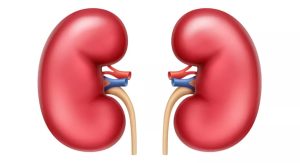What are 5 do’s and 5 don’ts for a patient with CKD?

Writing 5 do’s and 5 don’ts for a patient with chronic kidney disease (CKD) is quite difficult – as there is a big difference between:
- A patient with ‘Mild CKD’ (Stage 1, GFR > 90 ml/min, i.e. normal kidney function) and Severe CKD (Stage 5, kidney failure; GFR < 15 ml/min; needing dialysis or a kidney transplant)
- A 27 year old and 87 year old with the same stage of CKD (and GFR).

As shown in this table, CKD has 5 stages, determined by the GFR blood test (normal is 90-120 ml/min) – the higher the GFR, and lower CKD stage, the better. Not everyone progresses from a better to worse CKD stage. Kidney function can stabilise and even get better.
Nonetheless, the information below is true for most CKD patients, most of the time.
5 Do’s for a Patient with CKD
-
Optimise blood pressure (BP) control: Target BP <130/80 mmHg (< 120/70 mmHg if you have diabetes). Use ACE inhibitors or ARBs (for BP) if not contraindicated (ask your doctor). This is the single most important thing a CKD patient can do
-
Monitor kidney function and electrolytes (minerals): Make sure you have the following blood tests done regularly: GFR, urea, creatinine, and potassium levels; and from Stage 4 CKD onwards, also check calcium, phosphate, PTH and bicarbonate levels. You need to know your numbers (the results of blood tests) via the Patient Knows Best (PKB) website or NHS app
- Encourage lifestyle modifications: Stop smoking, take regular exercise, and keep to a healthy weight – to reduce your cardiovascular risk (and control diabetes if you have it)
- Focus on your diet: Optimise your nutrition with health eating. You may be asked to reduce phosphate, potassium and protein intake. Lose weight if you are overweight
-
Review medications regularly: You need to know everything about your tablets all the time. Ensure your medications are adjusted according to your GFR (doses may need to change). And please don’t run out!
5 Don’ts for a Patient with CKD
-
Don’t take NSAID painkillers (like aspirin and ibuprofen) for more than short periods (3 days or less): These medications can worsen kidney function, by causing episodes of acute kidney injury (AKI). Use alternative analgesics like paracetamol
-
Don’t assume that doctors prescribing new drugs will know if they are ‘nephrotoxic’ (damaging to the kidneys): You need to ask, ‘is this new drug safe for my kidneys?’ and ‘is the dose right?’
- Don’t overlook cardiovascular risk factors: CKD patients are at high risk of cardiovascular disease. Control your cholesterol, blood pressure, and diabetes to reduce this risk
-
Don’t forget to turn up for GP or hospital appointments: And when you go to hospital, don’t assume their computers will link to your GP, pharmacist or other hospitals. You need to be ‘the glue’ (i.e. inform each part of the NHS what other parts are doing).
- Don’t assume, if you have CKD4 or worse, you have been referred for kidney transplant workup: Check, check and check. And ask your friends, partner and relatives if they will donate you a kidney. The hospital will not do this for you.

